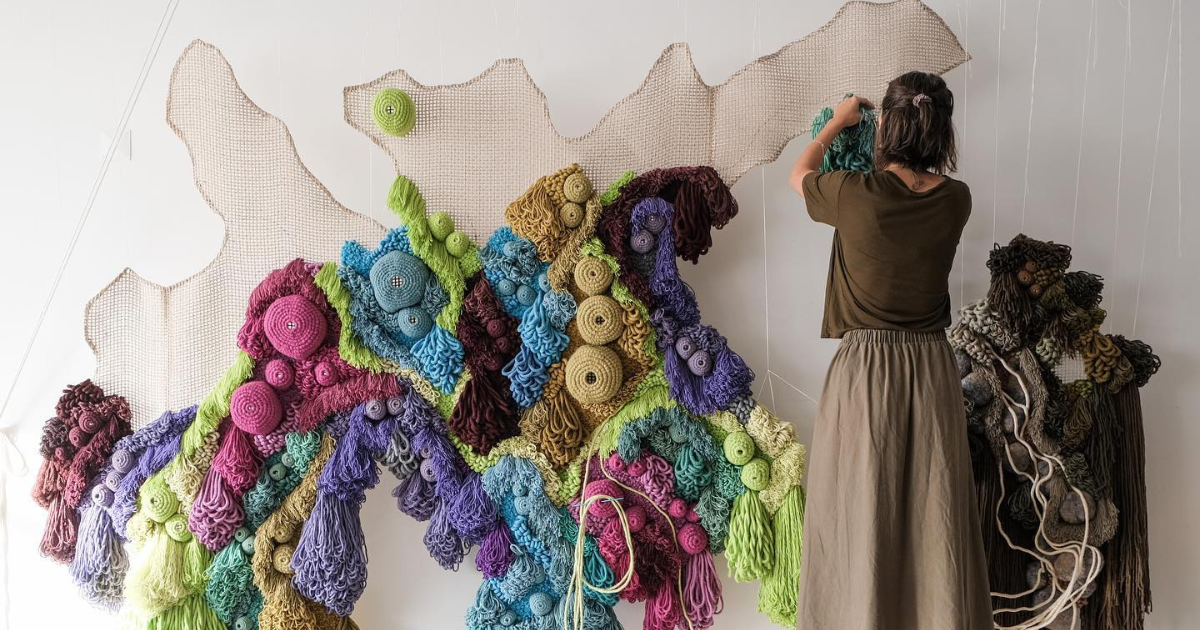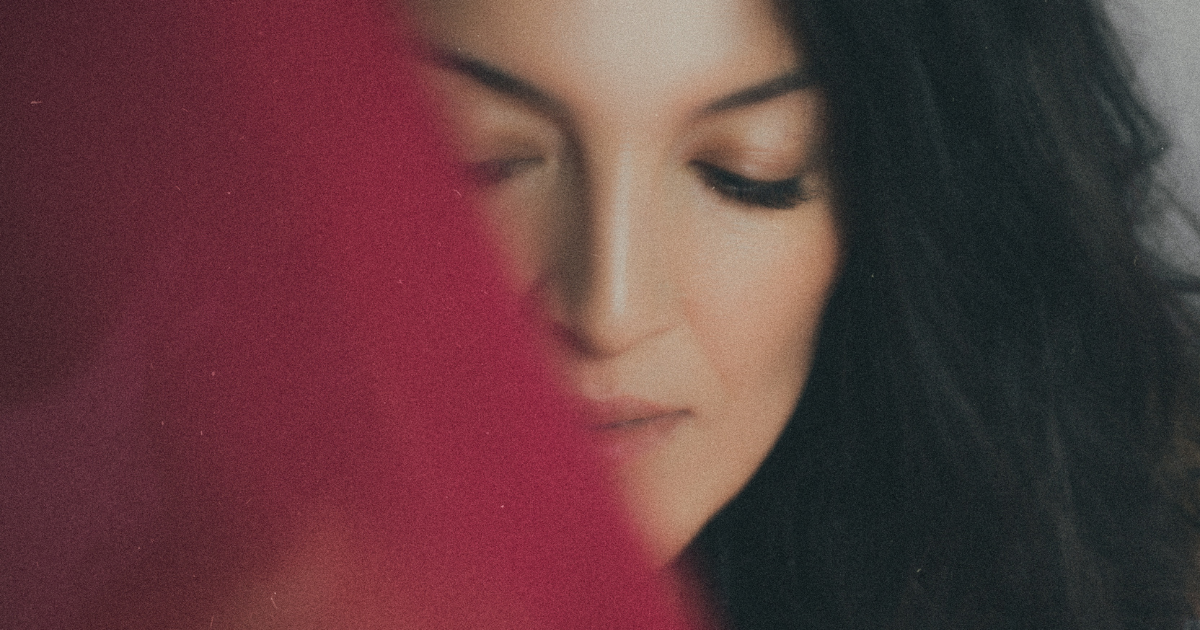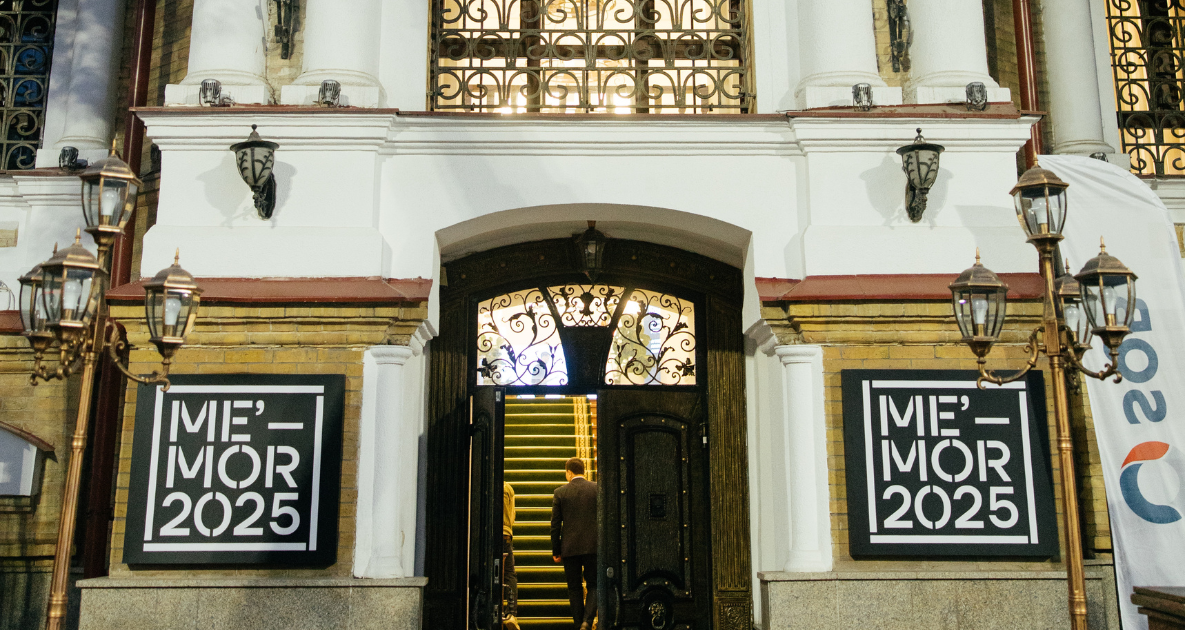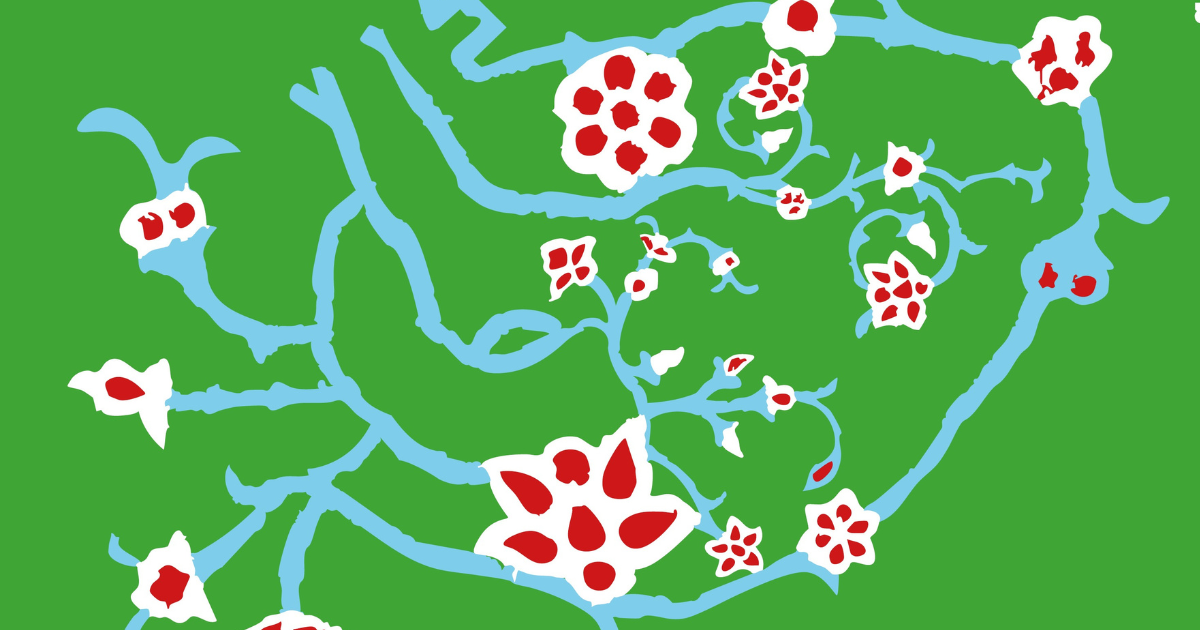Inspired by the sea
Unique marine-themed creations by talented women

The sea has always been an endless source of inspiration for creative minds. Its multifaceted beauty and incredible power have inspired countless works of art.
Vanessa Barragão
Portuguese artist Vanessa Barragão is renowned for her nature-inspired textile art, celebrating the beauty of global ecosystems. She pays homage to the ocean by creating incredible textile sculptures.
Coral reefs and the ocean are her main sources of inspiration, likely because she grew up by the sea.
Her tactile wool rugs, tapestries, and wall hangings are made from industrial waste.
Barragão strives to be as eco-friendly as possible in her creations. She uses recycled materials and meticulously handcrafts everything. Instead of using machines to create large structures, Barragão employs age-old techniques such as crochet, hand tufting, embroidery, and felting. The resulting textile structures boast a wide range of textures and colors.
For her Coral Garden collection, Barragão created an immersive installation from unsold stocks of a craft carpet factory. This stunning collection explores the detrimental effects of global warming on coral reefs. One side of a large textile wall panel depicts a lush, richly colored reef, while the other side shows a more subdued color palette, visualizing the destructive effect of coral bleaching. Similarly, her "Ocean Tapestry" uses wool threads in cool blue shades.
Barragão hopes her work will raise awareness about environmental issues and inspire people to contribute to the health of our planet.
Her team includes almost her entire family: her mother, sister, aunt, and grandfather, all of whom help her create each piece.
Courtney Mattison
Growing up in the San Francisco Bay Area, Courtney Mattison developed a deep love for the ocean from an early age. The artist discovered ceramics during her teenage years in California. Introduced to clay during her college years by a family friend who was a potter and sculptor, Mattison became intimately familiar with the material. So much so that it seemed natural to start using it to create sculptures of marine life. With an education in marine ecology and ceramic sculpture, Mattison combines her two passions to create stunning large-scale ceramic coral reef sculptures that draw public attention to the impacts of climate change.
According to Mattison, ceramics are a natural material for depicting coral reefs because the chemical composition of ceramics and many glazes includes calcium carbonate, which is actually a limestone material.
The artist uses a bright palette of glazes that replicate the colors of healthy corals. In some works, these vibrant colors contrast with white glaze, highlighting the visual contrast between healthy reefs and those bleached by climate change.
Some of Mattison's works are large-scale, and all of her pieces look organic. This naturalness is the result of a meticulous process involving multiple stages, all done without molds. Everything is handcrafted, textured, and glazed by the artist herself. Considering these factors, the creation process is lengthy, with the scale of the work affecting the time required to complete it.
Aude Bourgine
Aude Bourgine creates stunning embroidered coral sculptures, which she symbolically protects under glass domes.
These sculptures, frozen in time and displayed like museum specimens, are precious witnesses to the fragility of nature and the vanishing ecosystems around us.
At first glance, Bourgine's work appears to be a playful interpretation of reef ecosystems. Colorfully crafted as embroidered bead and sequin sculptures in bell jars, each piece showcases dazzling textures and diverse forms of corals. However, Bourgine emphasizes that her works serve a more important purpose and have a much deeper meaning.
Poumons des océans (which means "lungs of the oceans") is a collection of delicate coral sculptures that highlight the ecological importance of coral reefs, drawing attention to this universal issue that affects all of us.
Bourgine promotes nature conservation through her craft. Driven by the hope of raising awareness about ecological issues, she aims to convince us that we can still act together to make a difference.


